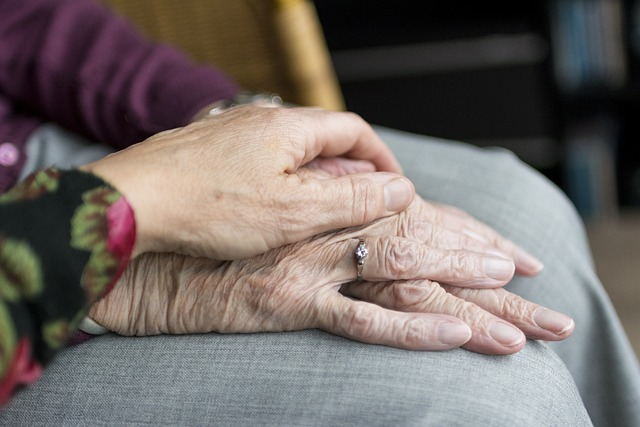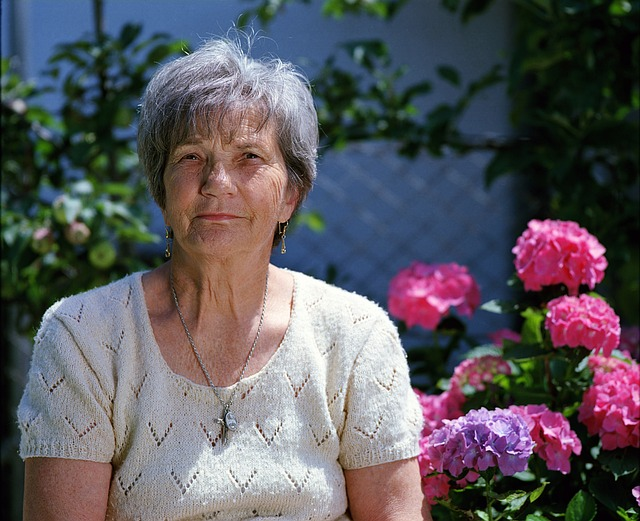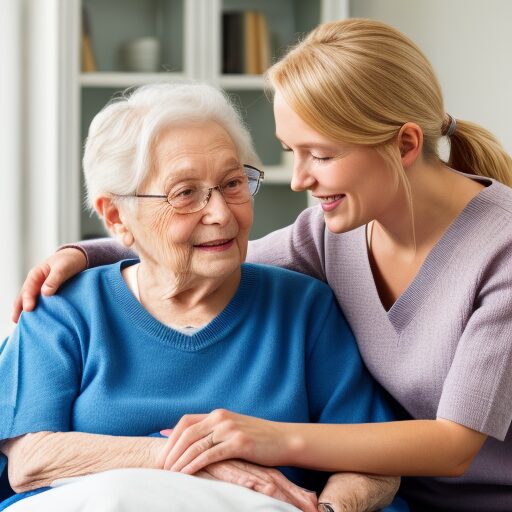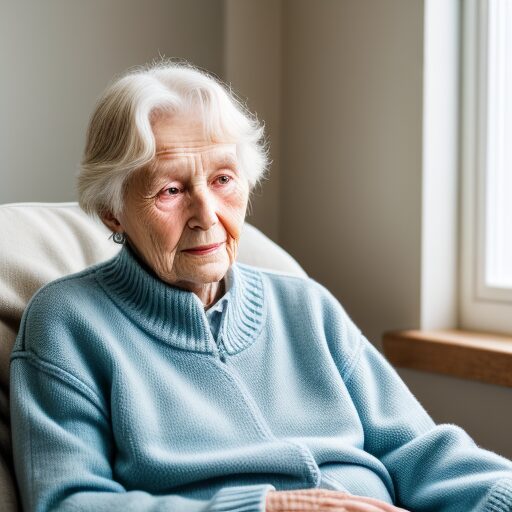As our parents get older, many families need to find ways to care for older people at home. Some might choose residential care, such as nursing homes. But more and more families choose to keep elderly family members at home.
Taking care of elderly loved ones at home can be both rewarding and challenging. Recent studies indicate that seniors increasingly choose to age in place, remaining within the comfort of their homes rather than moving into senior living facilities.

Contents
A Look Back
My parents cared for my paternal Grandmother after her Alzheimer’s worsened. They had also cared for my maternal Grandmother when she battled lung cancer. Although both Grandmothers lost their medical battles, they were lovingly cared for by my parents throughout their journeys. I always knew that if and when my parents needed me to step forward for them, I wouldn’t hesitate.
My Personal Experience
We cared for my elderly Dad after his stroke. Mom had passed years before from a car accident, leaving the decisions and tending to my brother and myself. Keeping him home was a goal we made early on. His stroke caused primarily physical issues, leaving him at his average mental capacity.
With good support from family and a helpful medical team, Dad lived in good health for several years. When he required hospitalization, I was still able to stay with him, ensuring he was as happy and cared for as possible.
I created this guide to offer essential tips, resources, and strategies to help you provide effective and compassionate in-home care for your aging family member. Ready? Let’s create a safe and supportive environment for our beloved elders!
Key Takeaways
- Home care refers to the professional services provided to elderly individuals in their own homes, including personal care, companionship, assistance with daily tasks, and medical care. This might include paid professionals, family members, or a combination.
- Aging in place allows older adults to stay in their homes or a family home. This enables them to maintain independence while receiving the necessary support they need.
- Home care services such as home health aides, meal delivery programs, and in-home therapy can help aging adults age in place more comfortably and safely. Family members often choose to learn the needed skills to provide part or all of the home care.
- Options for taking care of elderly parents at home include sharing caregiving responsibilities with family members, utilizing adult daycare centers, hiring a caregiver, and making use of outdoor activities.
What is Home Care?
Home care refers to either family care or professional services provided to elderly individuals in their own homes. It involves various types of assistance, including personal care, companionship, help with daily tasks, and even medical care.
Home care offers numerous benefits for seniors by allowing them to maintain independence and continue living in a familiar environment while receiving the support they need.
Definition and Explanation
Home care provides help to older adults in their own homes or the home of a close family member. This service has a lot of parts. It covers hands-on tasks like bathing and grooming. It also takes care of things that don’t need physical touch, like taking them for errands or trips.
Family members may do home care, and caregivers are trained at what they do and know how to look after patients’ health and support needs at home. Many older adults choose to age in place, which means growing old while still living in their own house where they feel comfortable most.
But planning ahead matters if you want this kind of setup so you can prepare things and get services as needed.
Benefits of Home Care
Home care offers many good things for seniors.
- It helps older adults feel free. They can live in their own home.
- Caregivers lend a hand with daily tasks. This makes life easier for seniors.
- Home is a happy place for most people. Seniors find comfort in familiar places.
- Home caregivers focus only on one person at a time. This gives seniors the care they need. Occasionally, they may provide help for a couple.
- home care can help seniors get better quickly if they are sick. They often coordinate with the medical team and assist as needed.
- Seniors feel less alone with home care helpers around. They can connect with others in their area quickly.

Types of Home Care Services
Home care services encompass personal care, companionship, assistance with daily tasks, and medical care.
Personal Care
Personal care is a big part of home care services. It deals with the body, looks, clean habits, and movement of older adults. Home helpers help seniors with personal care needs in their homes.
These needs can be bathing, dressing, or eating food. A home helper can also aid an older adult in moving around the house quickly. Personal care aims to give comfort and keep your loved one safe.
This support lets them live happily in their homes without stress or worry.
Companionship
Having a companion is essential for the emotional well-being of older adults. It helps prevent feelings of loneliness, depression, and isolation. Companionship involves social interaction and emotional support, which can significantly improve mental health.
Family caregivers are crucial in providing companionship to their elderly parents or grandparents. In addition to family support, home care services offer companionship as part of their assistance.
These services include running errands like grocery shopping, providing transportation to doctor’s appointments, and ensuring that seniors regularly interact with someone who cares about them. Companion care is vital in supporting older adults’ overall well-being at home.
Assistance With Daily Tasks
Home care services provide valuable assistance with daily tasks for elderly individuals. These tasks include personal hygiene care, meal preparation assistance, and household task assistance.
Home health and personal care aides are trained professionals who can help with activities such as dressing and bathing, managing finances, and even companionship. They aim to support older adults in maintaining their independence by providing the necessary help with daily living activities in the comfort of their own homes.
Whether cooking meals or getting dressed, home care services ensure your loved ones receive the necessary support to live comfortably and safely.

Medical Care
Home care services for older people include medical care to ensure their health and well-being. This can involve nursing services, rehabilitation services, home healthcare, and medication management.
Home health care services assist with everyday tasks like walking, bathing, dressing, and meal preparation. Some examples of medical support include doctor care, physical therapy, occupational therapy, speech therapy, and medical social services.
These services are aimed at helping older adults stay healthy and independent while receiving the necessary medical attention they need in the comfort of their own homes.
Is Aging in Place Right for You?
Are you considering aging in place for your loved ones? Explore the factors to consider and make an informed decision. Discover the benefits of home care services that can help support independent living.
You can just read on to learn more.
Definition of Aging in Place
Aging in place means staying in your home and community as you age. It’s all about living independently, comfortably, and safely in familiar surroundings. You have control over where you live and can maintain a sense of belonging.
The goal is to stay in your preferred residence for as long as possible, even if you need some services or care to help you. Making changes to increase safety is essential, too, so tips are available for creating a safe and accessible home environment.
Factors to Consider
Consider these critical factors when deciding if aging in place is suitable for your elderly loved ones:
- Independence and Dignity: Aging in place allows older adults to maintain their independence and dignity by staying in familiar surroundings.
- Social Support: Evaluate the availability of family, friends, and neighbors who can provide social support and companionship.
- Transportation Assistance: Consider whether transportation assistance is available for essential appointments, grocery shopping, and social activities.
- Home Modifications: Assess the need for home modifications to ensure safety and accessibility, such as installing grab bars, ramps, or stairlifts.
- Fall Prevention: Consider measures to prevent falls, such as removing tripping hazards and improving lighting throughout the home.
- Meal Delivery: Determine if meal delivery programs are accessible to ensure proper nutrition and convenience for your loved ones.
- Medication Management: Consider the need for assistance with medication reminders or a medication management system to enhance safety.
- Financial Aspect: Evaluate the financial implications of aging in place, including costs associated with home modifications and necessary caregiving services.
- Home Management: Assess your loved one’s ability to handle household tasks independently or if additional help is required for cleaning or landscaping.
- Community Support: Look into available community resources that can offer support services tailored specifically for seniors aging in place.
Home Care Services to Help Age in Place
Home care services provide invaluable support for older adults who want to age in place. From home health aides to meal delivery programs and in-home therapy, various options help meet their needs.
You can read on to discover how these services make it easier for your loved ones to stay in the comfort of their own homes as they age.
Home Health Aides
Home health aides are vital in helping elderly individuals age in place. These professionals receive specialized training and can assist with activities of daily living, such as dressing, bathing, and meal preparation.
They are part of a team of home health care professionals, including licensed practical nurses and therapists. Home health aides work for home health care agencies, hospitals, or long-term care facilities and provide professional caregiving assistance to help seniors maintain their independence at home.
Meal Delivery Programs
When needed, home-delivered meal programs provide a helpful option for aging adults who may have difficulty preparing their meals. These programs provide nutritious meals delivered right to their doorstep, ensuring access to healthy food even if they are homebound due to illness or disability.
Meals on Wheels is one popular program that delivers hot and balanced meals to seniors in the community. By participating in these meal delivery programs, older adults can maintain a healthy weight and support their overall health.
These services are available specifically for individuals aged 60 and older who live independently and may face food insecurity.
Family Meals
When a family caregiver can, they usually provide the older adult’s meals at home. Since the family usually knows the person’s favorite meals and dietary needs, they can best cook healthy meals that the senior parent enjoys.
In-Home Therapy and Counseling
In-home therapy and counseling are essential services that can be part of home care for older adults. These services focus on addressing the emotional and mental health needs of seniors.
Access to in-home therapy and counseling can help older adults maintain their overall well-being while receiving care at home. It provides support and assistance in coping with the challenges and changes of aging in place.
In-home therapy and counseling offer geriatric therapy, mental health support, emotional counseling, and aging-in-place services for elderly individuals. These services contribute to the emotional well-being of older adults, helping them live a higher quality of life while aging in their own homes.
Options for Taking Care of Elderly Parents at Home
There are several options available for taking care of elderly parents at home, including sharing the caregiving responsibilities with family members, utilizing adult daycare centers, hiring a caregiver, and making use of your backyard for outdoor activities.
You can share the responsibility of caring for your elderly parents with other family members. This can make caregiving more manageable and ensure that everyone has a role to play. Here are some ways you can share care with family members:
- Cooperative caregiving: Work together as a team to create a schedule and divide caregiving tasks among family members.
- Teamwork in caregiving: Assign specific responsibilities to each family member, such as grocery shopping, meal preparation, or doctor’s appointments.
- Effective communication among family members: Keep open lines of communication to stay informed about your parents’ needs and any changes in their health or well-being.
- Understanding family dynamics: Be aware of each person’s strengths, limitations, and availability when determining how to share care effectively.
- Household tasks for elderly parents: Share the responsibility of household chores like cleaning, laundry, or yard work.
- In-home care for older family members: Explore options for professional in-home caregivers who can assist regularly.
- Safety adaptations for in-home care: Make necessary modifications to your parent’s home to ensure their safety and accessibility.
- Family meeting for caregiving: Set aside regular meetings to discuss care plans, address concerns, and adjust schedules if needed.
- Preventing caregiver isolation: Offer support and encouragement to one another to prevent feelings of loneliness or burnout among caregivers.
- Supporting older adults with disabilities: Collaborate on finding resources and services to help your parents maintain their independence while living with disabilities.
Utilizing Adult Day Care
Adult daycare centers are a great option for caregivers who need a break and want to ensure their elderly loved ones receive proper care and companionship during the day. These programs offer a stimulating social environment where older adults can engage in activities, make new friends, and receive supervision or assistance as needed.
Not only do adult daycare programs provide caregivers with much-needed respite, but they also serve as an alternative to placing their loved ones in long-term care facilities. About 14.5 million male caregivers are estimated to care for older family members, highlighting the importance of caregiver support services like adult day care.
Hiring a Caregiver
When caring for elderly parents at home, hiring a caregiver can be a great option. To find the right caregiver, you need to assess the needs of your loved one and meet with potential providers.
AARP guides you in finding and hiring the right in-home caregiver or other private home care for your family. It’s important to check references and background information before making a decision.
Additionally, if you’re looking for full-time care, you might consider hiring a live-in caregiver. Remember to ask about costs, payroll, and taxes when discussing independent caregivers for those with Alzheimer’s or other specific needs.
Utilizing Your Backyard for Outdoor Activities
Utilizing your backyard for outdoor activities can be a great way to care for elderly parents or grandparents at home. One option is gardening, which provides physical exercise and stimulation for older individuals.
You can modify the garden, equipment, and tools to make them easier for seniors. Spending time outdoors also benefits them from sunlight exposure, which boosts vitamin D levels and helps with brain function and muscle health.
In addition, engaging in therapeutic activities like gardening can positively affect their overall well-being. Consider utilizing your backyard as a space where they can enjoy these outdoor activities and improve their quality of life.
Tips for Hiring Home Care Providers
When hiring home care providers, looking for compassion and reliability is essential. Please conduct thorough interviews and background checks to ensure the right fit for your loved one’s needs. Take advantage of these essential tips!
When hiring home care providers, looking for compassion and reliability is essential. Please conduct thorough interviews and background checks to ensure the right fit for your loved one’s needs. Take advantage of these essential tips!
Qualities to Look For
When hiring home care providers for your elderly loved ones, it’s essential to look for certain qualities that make them effective in providing companion care. Here are some qualities to consider:
- Compassion: A caregiver should genuinely care about the well-being of your loved one and show empathy towards their needs and feelings.
- Patience: Caring for elderly individuals can require a lot of patience, especially if they have health issues or mobility limitations. Please look for caregivers who can remain calm and patient even in challenging situations.
- Reliability: It’s crucial to find caregivers who are dependable and responsible. They should show up on time, follow their commitments, and consistently provide the necessary care.
- Trustworthiness: Since you’re entrusting the care of your loved one to a caregiver, finding someone trustworthy is essential. Please be sure to look for individuals with good references and background checks.
- Communication Skills: Effective communication is essential in caregiving. Caregivers should be able to listen actively, communicate clearly, and keep you informed about your loved one’s condition.
- Flexibility: Every day may bring new challenges or changes in routine when caring for an older adult at home. A caregiver should be adaptable and flexible to handle different situations effectively.
- Respectfulness: A caregiver should treat their loved one with dignity, respect their privacy, and honor their personal preferences and choices.
- Experience and Training: Consider caregivers who have experience working with seniors or have received training in geriatric care. This ensures they have the necessary skills to provide proper care.
Interviewing and Background Checks
To ensure the safety and well-being of your elderly loved ones, conducting thorough interviews and background checks is crucial when hiring a home care provider. Here are some essential points to consider:
- Screening potential caregivers: Take the time to review resumes and applications carefully before scheduling interviews. Look for relevant experience, qualifications, and certifications.
- Background screening process: Conduct a comprehensive background check on potential candidates. This may include criminal record checks, reference checks, and verifying their professional credentials.
- Interview questions for home care providers: Prepare a list of specific questions to ask during the interview process. Inquire about their experience caring for seniors, their approach to challenging situations, and how they handle emergencies.
- Private home care hiring process: If you are hiring privately, following a proper hiring process is essential. This includes documenting agreements, discussing expectations, and completing all necessary paperwork.
- Resources for conducting background checks: Utilize resources such as online background check services or professional agencies specializing in senior caregiver screenings. These can provide valuable information to help you make informed decisions.
- Tips for hiring senior caregivers: Seek recommendations from trusted sources, such as friends or healthcare professionals with experience with home care providers. Additionally, consider conducting trial periods with potential candidates to evaluate compatibility before making a final decision.
- Advice for finding the right in-home caregiver: Take into account the unique needs of your loved one when selecting a caregiver. Look for individuals who are compassionate, patient, reliable, and have excellent communication skills.
- Home health aide background checks: When considering hiring a home health aide, inquire about their training and certifications. Ensure that they have undergone proper background screenings and are licensed if your state or region requires them.
- Nurse background screening: If you seek a qualified nurse for your in-home care team, verify their credentials through relevant licensing boards or organizations. Check references from past employers as well.
- Private home care for families: Hiring a private home provider offers flexibility and personalized care. It allows your loved one to receive assistance in the comfort of their own home while maintaining their independence.
Video Credit: @PamelaDWilsonCaregivingExpert
Interviewing and Background Checks
To ensure the safety and well-being of your elderly loved ones, conducting thorough interviews and background checks is crucial when hiring a home care provider. Here are some essential points to consider:
- Screening potential caregivers: Take the time to review resumes and applications carefully before scheduling interviews. Look for relevant experience, qualifications, and certifications.
- Background screening process: Conduct a comprehensive background check on potential candidates. This may include criminal record checks, reference checks, and verifying their professional credentials.
- Interview questions for home care providers: Prepare a list of specific questions to ask during the interview process. Inquire about their experience caring for seniors, their approach to challenging situations, and how they handle emergencies.
- Private home care hiring process: If you are hiring privately, following a proper hiring process is essential. This includes documenting agreements, discussing expectations, and completing all necessary paperwork.
- Resources for conducting background checks: Utilize resources such as online background check services or professional agencies specializing in senior caregiver screenings. These can provide valuable information to help you make informed decisions.
- Tips for hiring senior caregivers: Seek recommendations from trusted sources, such as friends or healthcare professionals with experience with home care providers. Additionally, consider conducting trial periods with potential candidates to evaluate compatibility before making a final decision.
- Advice for finding the right in-home caregiver: Take into account the unique needs of your loved one when selecting a caregiver. Look for individuals who are compassionate, patient, reliable, and have excellent communication skills.
- Home health aide background checks: When considering hiring a home health aide, inquire about their training and certifications. Ensure that they have undergone proper background screenings and are licensed if your state or region requires them.
- Nurse background screening: If you seek a qualified nurse for your in-home care team, verify their credentials through relevant licensing boards or organizations. Check references from past employers as well.
- Private home care for families: Hiring a private home provider offers flexibility and personalized care. It allows your loved one to receive assistance in the comfort of their own home while maintaining their independence.
Setting Expectations
When hiring a caregiver for your elderly loved one, it is essential to set appropriate expectations. Communicate the responsibilities and tasks you expect the caregiver to handle.
Discuss daily routines, medical needs, and any specific preferences or concerns. Make sure to ask about their availability and flexibility. It’s also crucial to discuss boundaries and privacy issues that may arise in a home care setting.
By openly discussing these expectations from the start, you can ensure that you and the caregiver are on the same page when providing quality care for your elderly family member.
Talking to a Loved One About Home Care Services
I’d like you to approach the conversation with empathy and understanding, addressing any concerns or fears they may have about receiving home care services.
How to Approach the Conversation
Approaching the conversation about home care services with a loved one can be challenging but essential. Start by choosing a calm and comfortable setting to talk. Let your loved one lead the discussion and listen actively to their concerns and fears.
Include other family members or healthcare professionals if needed. Remember to be patient and respectful, considering their wishes and any changes in health or financial situations.
By involving them in decision-making, you can find the best home care options that suit their needs and improve their well-being.
Addressing Any Concerns or Fears
When talking to a loved one about home care services for elderly parents or grandparents, it’s essential to address any concerns or fears they may have. Older relatives may be more receptive to genuine expressions of worry and understanding.
Instead of starting the conversation with accusations or demands, focus on clearly defining roles and responsibilities in caregiving. Utilize family gatherings as an opportunity to discuss and organize caregiving tasks together.
Present various choices and explore different available services so your parent or loved one can better comprehend the advantages of home care. By engaging in a calm and open conversation, you can alleviate their worries or apprehensions and establish a plan that meets everyone’s needs.
Other Senior Housing Options
Other senior housing options include independent living, assisted living facilities, and nursing homes.
Independent Living
Seniors who want to maintain their independence while living in a community setting have the option of independent living. This can include retirement communities and senior housing communities, where they can enjoy social activities and amenities without the burden of home ownership. They often have a local senior center or transport to one.
Moving to an independent living facility doesn’t mean losing independence; it’s about preserving it. Independent living suits older adults who are in generally good health and looking for a maintenance-free lifestyle. They typically have fewer health problems.
Assisted Living Facilities
Assisted living facilities are a popular option for older adults who need help with daily activities but still want independence. These facilities provide a safe and supportive environment, offering bathing, dressing, and grooming assistance.
The assisted living community also provides transportation and social activities to keep residents engaged. Just to let you know, assisted living differs from nursing homes. Ideally, it gives seniors more freedom while providing the care they need.
Currently, over 818,800 Americans are living in assisted living facilities across the country. These facilities offer private rooms or suites, round-the-clock clinical care, and three meals a day.
Nursing Homes
Nursing homes are places where people who can’t be cared for at home or in the community receive help. They offer a wide range of personal care and health services. Nursing homes provide medical practices and therapies that may not be available in other senior housing options.
The quality of care residents receive in a nursing home links closely to the adequacy of the facility’s staffing. Nursing homes provide four levels of care, and eligibility for assisted living varies.
Caring for the Elderly at Home
Caring for elderly loved ones at home can be a rewarding and fulfilling experience. This guide provides valuable information on the different types of home care services available, tips for hiring caregivers, and resources for aging in place.
More and more adult children are caring for elderly parents at home. These living arrangements allow the family to provide senior care with constant supervision. Keeping parents at home is possible when you plan. Include caregiving help when needed.
By following these steps, you can ensure that your aging parents and other elderly family members receive the support they need while maintaining their independence and quality of life.
FAQs
What are some general tips for caring for elderly parents at home?
Some general tips for caring for older people at home include ensuring a safe and accessible living environment, providing nutritious meals, encouraging physical activity, and regularly checking in on their emotional well-being.
How can I help prevent falls in older people?
To help prevent falls in older people, you can remove trip hazards, install bathroom grab bars, improve house lighting, encourage regular exercise to improve strength and balance, and ensure they wear appropriate footwear.
What should I do if an older adult refuses assistance or care?
If an older adult refuses assistance or care, respecting their autonomy and expressing concern for their safety is essential. You can have open conversations about their reasons for refusing care and explore alternative solutions that may meet their needs and preferences.
How can I support an elder's mental health?
You can support an elder’s mental health by engaging them in social activities such as spending time with friends and family or participating in community programs. Encouraging hobbies or interests that bring joy can also contribute to positive mental well-being.
Are there any resources available to help caregivers of older people?
Yes, there are various resources available to support caregivers of older people. Look for caregiver support groups, respite services that provide temporary relief from caregiving duties, online forums where caregivers can connect with others facing similar challenges, and government agencies offering information on available benefits and assistance programs.
Empowering Seniors, Enriching Lives: Connect with Senior Parents!
? Explore a community dedicated to senior care! Discover engaging content, insightful product reviews, and connect with like-minded individuals passionate about enriching the lives of our beloved seniors.
Follow us on Facebook, Instagram, Pinterest, and Twitter. Your journey to enhancing senior well-being starts here! ? #SeniorCareCommunity #EmpowerSeniors
Read More
Here you can create the content that will be used within the module.











